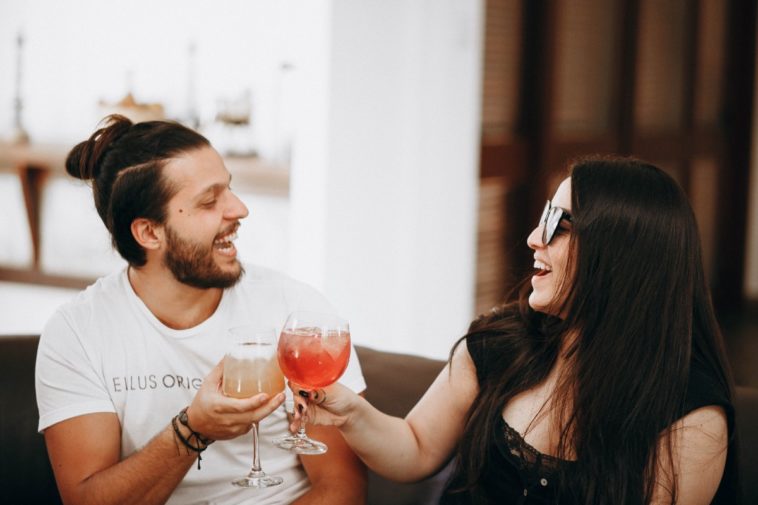h2>Dating : 5 Reasons Dating is a Waste of Time
For single people
Let me be clear, I have nothing against dating. Or, for that matter, against wasting time.
If all you want is partners for brief sexual adventures, by all means, swipe right. As long as both of you are honest with regard to your intentions, then enjoy! This article is not for you.
On the other hand, if you seek something more, like love, like a partnership that won’t be blown up by an argument or two or shattered by the normal stress of life, then I suggest you need a better strategy.
No question, dating’s fun. What could be more exciting than to meet someone brand new, someone who is, like you, in search of romance?
Like Gump’s mama said, you don’t know what you’re gonna get. Some duds, some dynamite, and lots of in-between. And if you’re really, really lucky, you could find THE ONE to ride off with into the sunset of your happily ever after.
But pleasant as the dating game can be, your odds of winning — meaning ending up in the relationship you want — are, frankly, pretty slim. Here’s why.
1. First dates tell you almost nothing about who a person really is.
Starting from the choice of words and pictures on our dating profiles, and continuing through choices of what clothes to wear and favorite stories to trot out, dating in its early stages is about impression management.
Are we dishonest? No, not most of us, at least not deliberately. But we know we’re going to be compared to lots of other prospects, and we want to show off how attractive we can be.
Let’s face it, it’s a beauty contest — for men and women both — and we want to win. We want to be judged the wittiest, the prettiest, the sexiest, the most fun. We want to be the last contestant standing in the show, just in case our date turns out to be a keeper.
Yes, we offer our disclaimers, our confessions of our (mostly minor) imperfections, but we time those candid moments carefully, to make sure they aren’t the main things that our dates are likely to remember of the evening.
And we spend our time together having fun, being charming, being entertained.
And by the end of maybe three such evenings, we assume we know each other well enough to make at least a tentative commitment. Is that realistic?
2. The decision to pursue a dating relationship is likely to be based on sexual chemistry.
Good news! You’ve both won the contest for Mr./Ms. Right (Now). You’re definitely interested enough to take it to another level. You move from dates to “dating,” change the status on your social media, start posting “couple” pictures, and start making plans beyond next weekend.
But on what basis have you come to that decision?
Obviously, you like each other. You enjoy each other’s company. You’ve shared some quality time, hopefully including hours of conversation, possibly established your compatibility in bed.
If you’re smart, you’ve shared your visions of the future, making sure your goals and values are enough alike to mesh. You’ve asked important questions about one another’s history, and you’re pretty sure there are no major deal-breakers waiting to be discovered.
But how well do you really know each other?
Your bodies tell you, “well enough!” When you kiss, the tongue-to-midbrain circuit tells you almost instantly if you’re compatible. The chemistry of sexual attraction is a potent force; it can override the higher-order process we call judgment.
In truth, though, what you think you know about each other is far less than you believe, because, in the early stages of relationships, we tend to see each other through unconscious templates. We “recognize” each other as “the one” we have been looking for.
That’s why our hearts so often break, a few weeks or a few months down the road, when we discover that the person we’re in love with isn’t who we thought they were.
The qualities that do predict stability in a relationship, and the qualities that make someone a good prospective partner, are seldom obvious within the few weeks, the time when couples often are deciding whether to move forward or move on.
3. We gravitate toward familiar types of people, when someone very different may be better suited for a long-term partnership.
The human brain (like any mammal brain) puts great stock in familiarity. Part of what makes someone feel “right” to us is how easily we interact. That marvelous discovery of someone who can finish all your sentences, who knows just how and when to touch you, whose voice and laughter sound somehow like something from a past life reawakening — it isn’t magic. It’s a sign that you’ve grown up in similar emotional surroundings.
We learn, early in our lives, the “scripts” for how relationships operate. We learn those scripts from parents and other caregivers, and we tend to recreate those scripts in our adult relationships. If we’ve been blessed with healthy and supportive families, we are likely to play healthy and supportive roles with the families we build.
But if we grew up around addiction, abuse, neglect, or mental illness, we learn to fit ourselves into unhealthy roles. Sometimes this becomes the pattern psychologists refer to as codependency, which basically involves neglecting one’s own needs in an effort to keep a “more important” person happy.
This is important to understand, especially for the person who has been through a string of unhealthy or even abusive relationships. They keep choosing partners who “feel right,” but that rightness is actually just the sign of someone recreating that familiar script. If you want something different to happen, you have to be prepared to get involved with someone who feels, well, different.
4. Dating interferes with friendship building.
People in stable, lasting, and fulfilling relationships nearly always describe their partners as “my best friend.” The one you’re happy with, even as the years pile up and change all about create new challenges, is someone you can talk with, work with, play with in and out of bed, argue with, and trust not just to have your back, but also to be honest with you when you’ve gone and made a jackass of yourself.
My second marriage didn’t last the lifetime we naively promised one another that it would, but in our 25-year run, we finished grad school, built careers, created two beautiful children, had a wide and loving group of friends, and made a difference in our community. Seventeen years later, we still hold each other in high esteem, consult with one another over problems, and enjoy good conversations now and then.
And for that quarter-century of partnership, while the passion ebbed and flowed, the friendship — the never-ending conversation — was the rock against which all the storms would break.
But to build the kind of friendship that becomes best-friendship and at some point catches fire, you have to take the time to get to know each other. Trust is not established overnight, and it stands little chance of forming while the masks of impression management are covering our true selves.
As long as you are preoccupied with the question of whether you will “win” — Will she sleep with me? Will he commit to me? — you are in a poor position to be building partnerships.
As long as you define success as keeping the relationship, and therefore feel like ending it would be a failure, you cannot judge with any objectivity if this is really what is best for you.
So how are you to find the love you want, if not by dating?
By building your circle of friends, not selected for their sex appeal but for the qualities you value in a friend. People who are interesting and friendly, people who are kind and funny, people who appreciate you as an individual and not just for what you might do for them, people who show up when someone needs a hand, people who have mastered to an age-appropriate degree the fine art of adulting.
One of the quickest ways to answer questions of this sort — questions you cannot be sure of when you’re busy charming one another — is to spend time around each other’s friends. If you don’t like his/her friends, or if your friends don’t like the vibe that he or she is giving off, break it off.
Final warning sign, the simplest: If someone tells you, “You’re too good for me,” believe them.
5. Dating is important, even vital, later on.
The friendship is established. You fit well into each other’s friendship circles and each other’s lives. You’ve worked on things together, getting dirty sweaty tired and grumpy, and know each other far too well to be impressed by any more impression management.
And you genuinely like each other. Maybe he or she is not your type — you thought you only went for willowy and blonde; the hunk of your dreams was your age or older and at least as tall as you — but as you see them now with educated eyes, you are amazed at how attractive someone “not your type” can be.
NOW it’s time for one of you to ask the other out, to get dressed up and be your most charming self, to celebrate the friendship and discuss the possibilities.
And if you choose to build on what you’ve built, perhaps cohabitating or whatever you may choose to call the partnership, and especially if it’s marriage and you’ve had a child or two, dating should be part of it.
Dates that celebrate each other and remind each other of the spark that set you both afire. Dates where you both know you’re going to end the night in bed together, but you flirt like you just met and let your partner see how hard you’re trying to seduce them.
You’ll find it’s still a waste of time, but by then you’ll know that nothing in the world could be as much worth doing as to waste an evening in the company of your best, loving friend.



